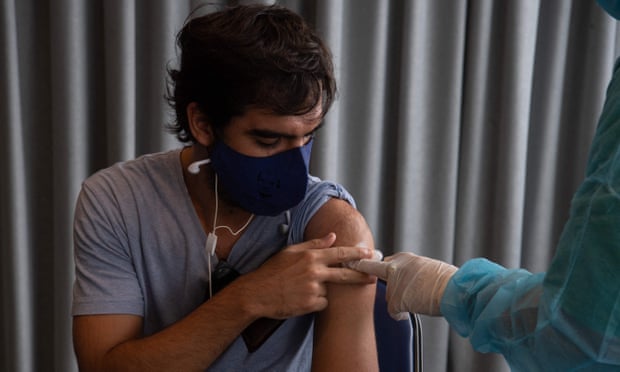Survey of experts in relevant fields concludes that new variants could arise in countries with low vaccine coverage.
The planet could have a year or less before first-generation Covid-19 vaccines are ineffective and modified formulations are needed, according to a survey of epidemiologists, virologists and infectious disease specialists.
Scientists have long stressed that a global vaccination effort is needed to satisfactorily neutralise the threat of Covid-19. This is due to the threat of variations of the virus – some more transmissible, deadly and less susceptible to vaccines – that are emerging and percolating.
The grim forecast of a year or less comes from two-thirds of respondents, according to the People’s Vaccine Alliance, a coalition of organizations including Amnesty International, Oxfam, and UNAIDS, who carried out the survey of 77 scientists from 28 countries. Nearly one-third of the respondents indicated that the time-frame was likely nine months or less.
Persistent low vaccine coverage in many countries would make it more likely for vaccine-resistant mutations to appear, said 88% of the respondents, who work across illustrious institutions such as Johns Hopkins, Yale, Imperial College, London School of Hygiene & Tropical Medicine and the University of Edinburgh.
“New mutations arise every day. Sometimes they find a niche that makes them more fit than their predecessors. These lucky variants could transmit more efficiently and potentially evade immune responses to previous strains,” said Gregg Gonsalves, associate professor of epidemiology at Yale University, in a statement.
“Unless we vaccinate the world, we leave the playing field open to more and more mutations, which could churn out variants that could evade our current vaccines and require booster shots to deal with them.”
The current crop of vaccines that have received emergency authorisations in different parts of the world is a mix of old and fresh technologies.
Of particular interest is the mRNA approach, employed by the companies Pfizer/BioNTech and Moderna, which can be tweaked at speed (within weeks or months) to accommodate new variants – however, manufacturing hiccups are always a potential problem.
But crucially, they are unlikely within reach of poorer countries, given that this set of vaccines are far more expensive and have comparatively onerous temperature storage requirements.
Meanwhile, resource-rich countries like the UK and US have administered at least one vaccine dose to more than a quarter of their populations and have secured hundreds of millions of supplies. In contrast, nations such as South Africa and Thailand haven’t even managed to get shots in the arms of 1% of their populations. Some countries are yet to administer their first dose.
Covax – the global vaccine initiative coalition aimed at countering so-called vaccine nationalism – hopes to be able to supply at least 27% of the population of lower-income countries with vaccines in 2021.
CLICK HERE FOR FULL ARTICLE ON THE GUARDIAN


